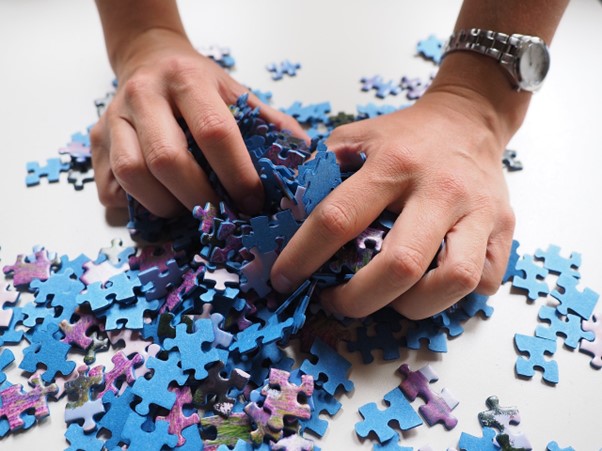
5 Puzzles That Are Great For Your Brain
Your brain is made up of trillions of potential neural pathways. Solving puzzles helps you to open up new pathways and reinforce old ones. It’s essentially like building and maintaining a massive road network in your brain. This allows you to think faster and more creatively.
There are many different puzzles that you can use to expand and strengthen those neural pathways. Below are just a few examples of puzzles that are great for your brain.
Sudoku
Regularly completing sudoku puzzles can enhance deductive reasoning, concentration and memory. These number-placement puzzles can be found in most puzzle books. They can also be played via many websites and apps. Standard sudoku puzzles consist of a 9 x 9 grid. The aim is to complete the grid so that every column, row and sub-grid contains the number 1 to 9. A few variants exist such as killer sudoku and sudoku mini which can make things more challenging.
Crosswords
Crosswords can help to improve deductive reasoning, boost memory and increase one’s vocabulary. They are popular puzzles in newspapers, but are also popular in puzzle books. Web-based and app-based versions of crosswords also exist, as well as a variety of cross-inspired digital games like Wordle and Wordscapes. Most of us have tried a crossword before, but if you haven’t, the rules are simple: fill in the grid by solving words based on the clues provided. Of course, there are crosswords that don’t have clues or add other twists.
Scrabble
Scrabble is a board game that tests both vocabulary and mental maths skills by challenging you to create the highest scoring word you can by using different valued letter tiles to form words. The most traditional way to play scrabble is as a physical board game with friends or family. However, a scrabble app also exists (it does however take away some of the challenge by automatically calculating words and telling you if a word is not real or not before you lay it).
Rummikub
Rummikub improves concentration, memory and forward-thinking skills. It is a combination of the card game rummy and the tile game mahjong that uses numbered tiles. The aim of the game is to be the first person to lay down all of your tiles by arranging them into numbered sequences. As with scrabble, rummikub is available to play as an app as well as a physical board game.
Jigsaw puzzles
Jigsaw puzzles may be one of the most simple puzzles, but they are also one of the most effective. Working out how to arrange the jigsaw pieces together can improve visual-spatial skills, boost short-term memory and improve patience. You can buy puzzles that have hundreds and even thousands of pieces. These puzzles are a real test of brainpower, but do require a lot of time to complete (plus you don’t want to leave them anywhere where they could accidentally get destroyed). This has helped lead to the increasing popularity of digital jigsaw puzzles – such puzzles can be completed on your phone from anywhere and there’s no risk of them accidentally getting destroyed when you leave them.










All these puzzles sound great, jigsaws are my favorite. Thanks for sharing!